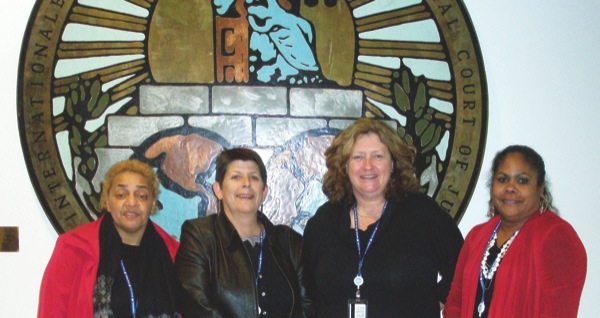As a member of the United Nations, Australia sent a delegation to the Commission on the Status of Women (CSW), which comprised of representatives from government and advisory bodies, and three women from the not-for-profit (NFP) sector.
Tanya Plibersek, Federal Minister for the Status of Women, told Third Sector that this was an opportunity for Australia to share its achievements in ensuring women’s equality and empowerment.
Minister Plibersek considered the presence of the third sector to be important to providing the delegation with a wider perspective and understanding of the breadth of the concerns and views of Australian women.
“It was also important to recognise the role the community sector plays in delivering services and providing practical advice for all Australian women, and also towards increasing the voice and capacity of Indigenous women,” she said.
The three women shared their reflections from the experience with Third Sector.
Mary O’Reeri
Co-ordinator of Blank Page Summit; Teacher and Community Worker with the Billard and Begal Bay communities.
“I work to create linkages between NFPs, community folks and governments. Most of the work that I do involves the sector because Indigenous people are a major part of the NFP service delivery environment.
“The NFP sector is involved in solving some of the complex problems that all of us are confronting in Australia, particularly on a social level; the need for vision and clever approaches is vital.”
What did you ‘take away’ from the Commission?
“The discussions that I joined were very much about strategic ways to empower women and in turn, to improve the lives of children. Some of the discussions were very intense and heartbreaking.
“I couldn’t help feeling so fortunate to live in Australia, even though we have much more work to do in the area of human rights, particularly gender equality.
“It was very clear to me that our Indigenous culture in Australia has a long way to come in terms of true gender equality. Compared to many societies, though, we are doing well as a whole in Australia. I can see also that, compared with the struggles of my mother and grandmothers, Indigenous women have made strong gains in terms of gender equality.
“However, there is still a difference in opportunity and life patterns and outcomes for Indigenous women which is not widely understood in Australian society.
“Gender equality is structural to a degree. That’s the big learning I had from my time at the UN. We need to work at a very strategic level to change social outcomes. Within social inequality is gender inequality.”
Carole Shaw
Joint CEO of Jera International.
“JERA International is a relatively new not-for-profit organisation that acts as a conduit between community and decision-makers. It promotes justice, equality, rights and access to bring about positive change for women in Australia.
“Civil society has played a vital role in promoting women’s rights, gender equality and the empowerment of women.”
What did you ‘take away’ from the Commission?
“From my own viewpoint and experience of attending the Commission on the Status of Women for the last several years, Australia is now more open and active in negotiations, more open to including NFPs in discussions and more considerate of their input.
“NFPs must play a significant role in bringing the commitments of their governments from the UN resolutions home. The UN resolutions contain some strong language that can be used to advocate for change. NFPs must monitor and work strategically with government to bring about these changes.
“There is also a need for greater participation mechanisms for civil society, particularly women’s organisations, to advance the status of women.
“It was truly insightful to learn of the richness of bringing an Indigenous perspective into the Australian Delegation.
“Together, we can continue to work towards advancing women globally.”
Leanne Miller
Indigenous activist and executive director of Koori Women Mean Business.
“I am the descendant of the Dhulanyagen Ulupna Clan of the Yorta Yorta Nation, a long line of women and men who have lived their whole lives in service of their families and community.
“I really do not have any recollection of not being in contact with a member of the not-for-profit sector. One of my primary roles is to weave strength and collaboration through our projects and partnerships.”
What did you ‘take away’ from the Commission?
“I believe I have lived a life that has embraced not only my community, but the broader community as well.
“I have worked alongside those from many different cultural backgrounds who have become my friends and colleagues over many years, as we have worked together to strengthen our families and respective communities.
“The UN commission emphasised the sharing of experiences and good practices, with a view to overcoming remaining obstacles and new challenges, and to contributing to shaping a gender perspective towards the full realisation of the Millennium Development Goals.”


























































































































































